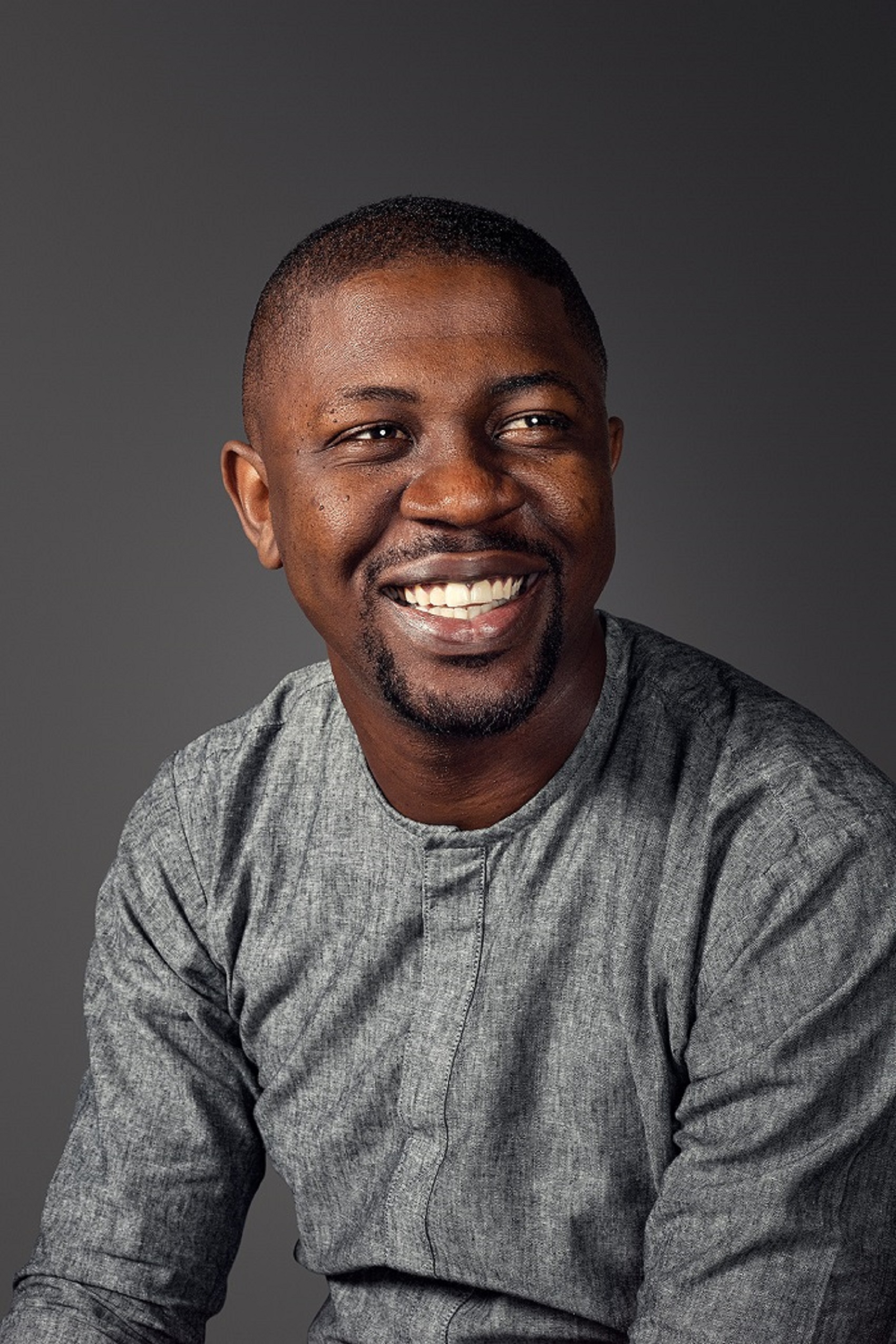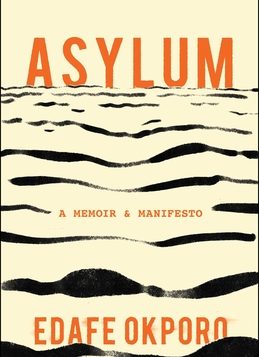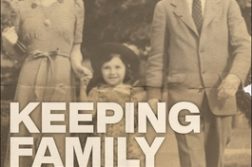EDAFE OKPORO’S Asylum: A Memoir & Manifesto opens at a market in Warri, a rural town in southern Nigeria, where he experiences his earliest years. As he and his mother wait in line for hired street youths to help them carry their purchases, two of the young men come to blows over who will get the job. This incident triggers an early recognition that he will never fit into the culture of masculinity reinforced by his mother. She tries to calm her terrified child with the words, “It is okay, my son. … This is how Warri boys are supposed to behave.”
Not surprisingly, Okporo’s preference for the company of girls and women earns him the taunt of “Mama’s boy” at school until, at nine, he and his only friend Gloria distinguish themselves on the debate team. This early talent for argument will serve Okporo later in life. But threats of kidnapping from a violent militia group and his prospects of eventually entering college curtail his immediate debating prospects. Sent to live with an aunt and enrolled in an all-boys boarding school in a neighboring town, Okporo experiences his first sexual encounter with a boy named Eric. This episode confirms that he is gay and precipitates complications that will follow him for the rest of his life.
The narrative retains its breathless urgency as Okporo arrives in the U.S. as an asylum seeker and is immediately placed in a detention center in New Jersey. The appalling treatment of detainees at the center is complicated by his gay identity. Compelling accounts of the circumstances of other detainees are contextualized by an over-view of state-sponsored anti-gay public policies in other parts of Africa and around the world. Okporo’s discerning insights appear throughout the book. He observes that queer identity “often alienates individuals from their immediate family which is not usually true of people who belong to persecuted religious or political groups. This can make it difficult for queer asylum seekers to talk to anyone about their sexuality.”
 The book’s subtitle is particularly apt. Activist Edafe Okporo skillfully integrates his life as a gay Nigerian refugee with astute historical and political analysis that both instructs and engages. The chapter about encountering racism in the U.S., for example, begins with an account of the first time he met an Oyibo (white) person as a nine-year-old, when she traveled to Warri to get married. The neighborhood’s awed reaction to her arrival demonstrates the racist attitudes prevalent in the village. There, even Okporo’s father believes Black soccer players act in defensive positions because they are not as smart as white players. In addition, Okporo explains that, of those Nigerians who study in the U.S., the rare ones who return to Nigeria never mention the daily indignities people of color face there. As he explains: “All the stories we heard were about the beautiful college campuses and access to electricity, water and good roads.”
The book’s subtitle is particularly apt. Activist Edafe Okporo skillfully integrates his life as a gay Nigerian refugee with astute historical and political analysis that both instructs and engages. The chapter about encountering racism in the U.S., for example, begins with an account of the first time he met an Oyibo (white) person as a nine-year-old, when she traveled to Warri to get married. The neighborhood’s awed reaction to her arrival demonstrates the racist attitudes prevalent in the village. There, even Okporo’s father believes Black soccer players act in defensive positions because they are not as smart as white players. In addition, Okporo explains that, of those Nigerians who study in the U.S., the rare ones who return to Nigeria never mention the daily indignities people of color face there. As he explains: “All the stories we heard were about the beautiful college campuses and access to electricity, water and good roads.”
The narrative then pivots to the searing yet commonplace instances of racism that Okporo experiences in America. They range from the Black man who told Okporo to “Go back to where you came from … or I will deal with you myself,” to a time when Okporo was refused admission at the door of an event at which he was the guest speaker. He links the homophobic checkpoints in Nigeria to the largely discredited stop-and-frisk policy in New York City and to Donald Trump’s anti-Brown immigration practices. Okporo describes his first visits to the mostly white gay bars in New York with a quip: “It was like I had lost an invitation to a party I probably wasn’t invited to.”
Perceptive and well-informed, with its far-reaching scope, this memoir offers inspiration and proposals for solutions. Okporo cites Canadian and Dutch measures that have resolved the housing difficulties for immigrants and avoided the use of for-profit detention centers. Edafe Okporo’s personal trajectory and presentation of the countless openhearted friends and associates who populate this narrative offer readers an encouraging snapshot of a world that many of us don’t often see.
The book is not flawless, of course. Some readers may disagree with Okporo’s perspectives, interpretations, and worldview. I found the religion chapter’s emphasis on Christianity, for example, particularly problematic. And occasionally the text may contain a few too many “shoulds.” Still these are minor criticisms of a book that succeeds admirably in informing, engaging, and inspiring.
Anne Charles cohosts the cable-access show All Things LGBTQ.






